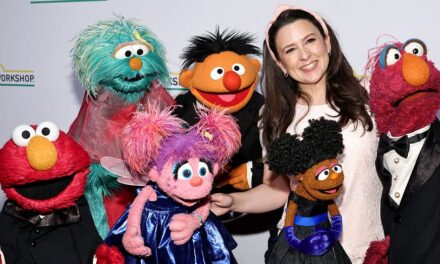In a stunning turn of events, CBS has found itself embroiled in a significant controversy following its dispute with New England Patriots head coach Bill Belichick. This clash, which has been widely discussed, marks just the latest challenge for a network that has faced numerous hurdles in recent months.
For decades, CBS has been a major player in the sports broadcasting industry, offering fans access to some of the most exciting events in American sports. However, a series of missteps and scandals have led to a tumultuous period for the network, with this latest incident involving Belichick throwing gasoline on the fire.
The root of the conflict lies in a recent interview that CBS conducted with one of Belichick’s former players. The interview was intended to provide insights into the coaching style and philosophy of the five-time Super Bowl champion. However, what was meant to be a light-hearted discussion quickly turned sour when the former player made unflattering remarks about Belichick’s methods and approach.
Belichick, who is known for his stoic demeanor and focus on football, was not amused by the interview. He publicly expressed his displeasure with CBS, calling the network’s decision to air the comments irresponsible. The head coach stated that such portrayals could damage years of relationship-building and trust between him and his players.
The outcry from Belichick wasn’t limited to the football community; it reverberated across sports media and entertainment platforms. Some argued that CBS had crossed a line by highlighting potentially damaging remarks, while others were more critical of Belichick, stating that any public figure must be prepared to deal with scrutiny.
As the story gained momentum, CBS faced significant backlash from various quarters. Media commentators lambasted the network for its editorial choices and raised questions about conflicts of interest, particularly given Belichick’s stature in the sport.
This dispute comes on the heels of several other controversies that have plagued CBS in recent months. The network has seen declining viewership ratings, prompting speculation regarding its future in sports broadcasting. Additionally, CBS has dealt with internal challenges, including reports of management turnover and issues related to its coverage of major sporting events.
The impact of the turmoil at CBS has been felt across the industry. Competitors in sports broadcasting have seized the opportunity to capitalize on CBS’s misfortunes by offering more favorable terms and attracting high-profile personalities who may have previously committed to CBS. This recent development in relation to Bill Belichick only adds to the already fraught atmosphere surrounding the network.
In response to the backlash from Belichick, CBS issued a statement highlighting its commitment to providing a platform for honest discussions about sports. The network emphasized that “part of the beauty of sports is the candid conversations it inspires” while also noting the importance of protecting the legacy of sports figures. However, many feel this statement fell short in adequately addressing the concerns raised by Belichick and others in the sports community.
Observers of the NFL and sports media landscape are watching closely as CBS navigates this situation and attempts to regain its footing in a competitive market. It remains to be seen whether the network will take further steps to mend its relationship with Belichick or if it will dig in its heels and continue to pursue a hard-hitting journalistic approach.
On a broader scale, this dispute raises substantial questions regarding the ethics of sports journalism. The line between entertainment and responsible reporting can often blur, and instances like this remind viewers that the people involved in sports are, at the end of the day, human beings with relationships, feelings, and reputations.
Experts have pointed out that the fallout of this incident may ripple throughout the league, affecting how media outlets approach their coverage of NFL teams and personalities in the future. Trust between players, coaches, and media has already been eroded in some instances, and narratives like this could widen the gap further.
Moreover, sports networks, including CBS, must grapple with their identity in an evolving media landscape. As technologies and audiences change, the conventions of how sports media operates must also adapt. If CBS hopes to remain a top competitor, it will need to find a balance between hard-hitting journalism and respectful reporting that maintains the dignity of the individuals involved.
Alongside the media stakes, public relations experts are also weighing in on how Belichick’s public image might be affected in light of this controversy. Known primarily for his methodical and no-nonsense approach to coaching, any negative portrayal may influence public sentiment towards him as a leader and mentor.
Despite the current controversy, it’s essential to remember the unparalleled success that Belichick has achieved in his career. As one of the most successful coaches in NFL history, his legacy is undoubtedly complicated but also revered. The challenge for both CBS and Belichick is to navigate this fallout while maintaining their reputations without alienating fans and players.
Ultimately, this situation serves as a pivotal moment for CBS as it faces a chorus of scrutiny from fans, analysts, and executives alike. The broader sports world is taking notice, waiting to see how this narrative unfolds. Will CBS maintain its authority in sports broadcasting, or will it become another casualty in a rapidly shifting media environment?
Going forward, one angle that cannot be overlooked is the evolving nature of player-coach-media relationships. As athletes become increasingly aware of their influence and voice, they may push back against narratives they perceive as unfair or damaging. With Belichick’s strong response, it is clear that he is prepared to stand up for his character and the connections he has built over the years.
For CBS, the pressure intensifies as it seeks a way to reconcile the fallout from this incident while healing divisions within the professional sports community. The company now faces choices that could affect its credibility and future in an industry that’s constantly changing. Likewise, all eyes will be trained on Belichick—how he navigates his own image amid this brewing storm will be as critical as the network’s efforts to address the situation.
This debacle is a reminder that in sports, as in life, the narratives we construct can have real ramifications for the people involved. Whether it’s CBS, Belichick, or the players who share their experiences, the world of sports is much more than just games—it is a complex web of stories that reflect our shared human experience.
Looking ahead, the story is far from over. CBS and Belichick both have much at stake; how they choose to move forward will likely define the immediate future for the network and the coach alike. It is a classic case of how intertwined the worlds of sports, media, and public perception can be, illustrating that the conversations we have in arenas, on fields, and through our screens shape the very ethos of the games we love.
































